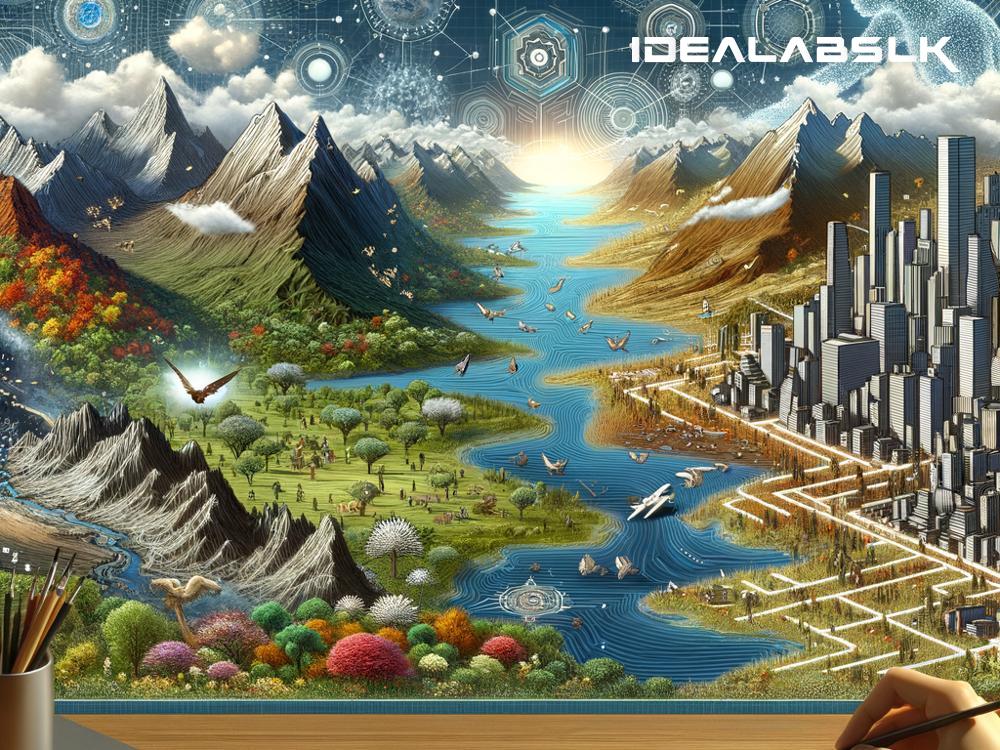The Future is Now: How AI is Transforming Open-World Games Like Far Cry 7
The universe of open-world games is vast - quite literally. These games offer players an expansive world to explore, full of surprises around every corner. But creating these worlds is a colossal task that demands months, if not years, of hard work from large teams. However, the tide is changing with the introduction of Artificial Intelligence (AI) in the game development scene, especially in procedural world creation. As we look toward the release of titles like Far Cry 7 in 2024, it's clear that AI is not just a tool but possibly the future backbone of open-world game development.
Understanding Procedural World Creation
Before diving into AI's role, let's understand what procedural world creation is. It's a method where game designers set specific rules for the game engine to automatically generate game environments. Think of it as planting a seed (the rules) to grow a tree (the game world), where each tree is unique depending on the seed's genetic makeup. This technique is not entirely new but integrating AI into the process has elevated its potential to unprecedented levels.
The Impact of AI on World Creation
AI's impact on game development is like giving an artist a magical brush; the possibilities become almost limitless. In the context of creating intricate and believable worlds for games like Far Cry 7, AI can significantly reduce the time and human resources needed. Here's how:
Complexity and Detail
AI algorithms can generate complex terrains, ecosystems, and urban environments that feel incredibly lifelike. In Far Cry 7, expect to see more intricate jungles, detailed cities, and dynamic weather systems, all rendered beautifully and uniquely thanks to AI. Unlike manual creation, which might reuse certain elements due to time constraints, AI can inject a dose of unpredictability and uniqueness into every corner of the game world.
Efficiency and Speed
Developing sprawling open-world games is notoriously time-consuming. By harnessing AI, developers can automate the creation of vast sections of the game world, freeing them to focus on narrative elements, gameplay mechanics, and polish. For players, this could mean shorter waits between game releases and more content within each game.
Customization and Player Interaction
AI in procedural world creation isn't just a tool for developers; it can enhance the player's experience by dynamically generating content based on player behavior. Imagine traversing the landscapes of Far Cry 7's game world, where the environment evolves based on your actions. This level of interaction and customization makes for a more immersive and personal gaming experience.
What the Future Holds
Looking beyond Far Cry 7, the integration of AI in procedural world creation hints at a future where game worlds are more dynamic, expansive, and reactive than ever before. We might see games with worlds that evolve not just during the development phase but continually while we play them. New areas could emerge, landscapes could change with virtual ecosystems, and narratives could shift based on collective player behaviors, creating a living world within the game.
Challenges and Considerations
While the perks of AI in game development are many, there are challenges too. Balancing AI-generated content to ensure quality and coherence in the game world is paramount. Moreover, the potential for unpredictable or unsuitable content generation necessitates innovative solutions to maintain control over the game's direction. As developers harness AI's capabilities, considering ethical implications and striving for diversity in the content generated will also be essential.
Conclusion
As we edge closer to Far Cry 7's release in 2024, the role of AI in procedural world creation is not just exciting but revolutionary. The ability to generate detailed, dynamic, and vast game worlds with AI's assistance marks a new era in video game development, promising richer and more immersive experiences for players.
Yet, the journey is just beginning. With advancements in AI technology and its applications in game design continually evolving, the future of open-world games is bright and limitless. As gamers, we stand on the brink of experiencing worlds beyond our wildest imaginations, making the wait for Far Cry 7 and future titles not just bearable but thrilling.

